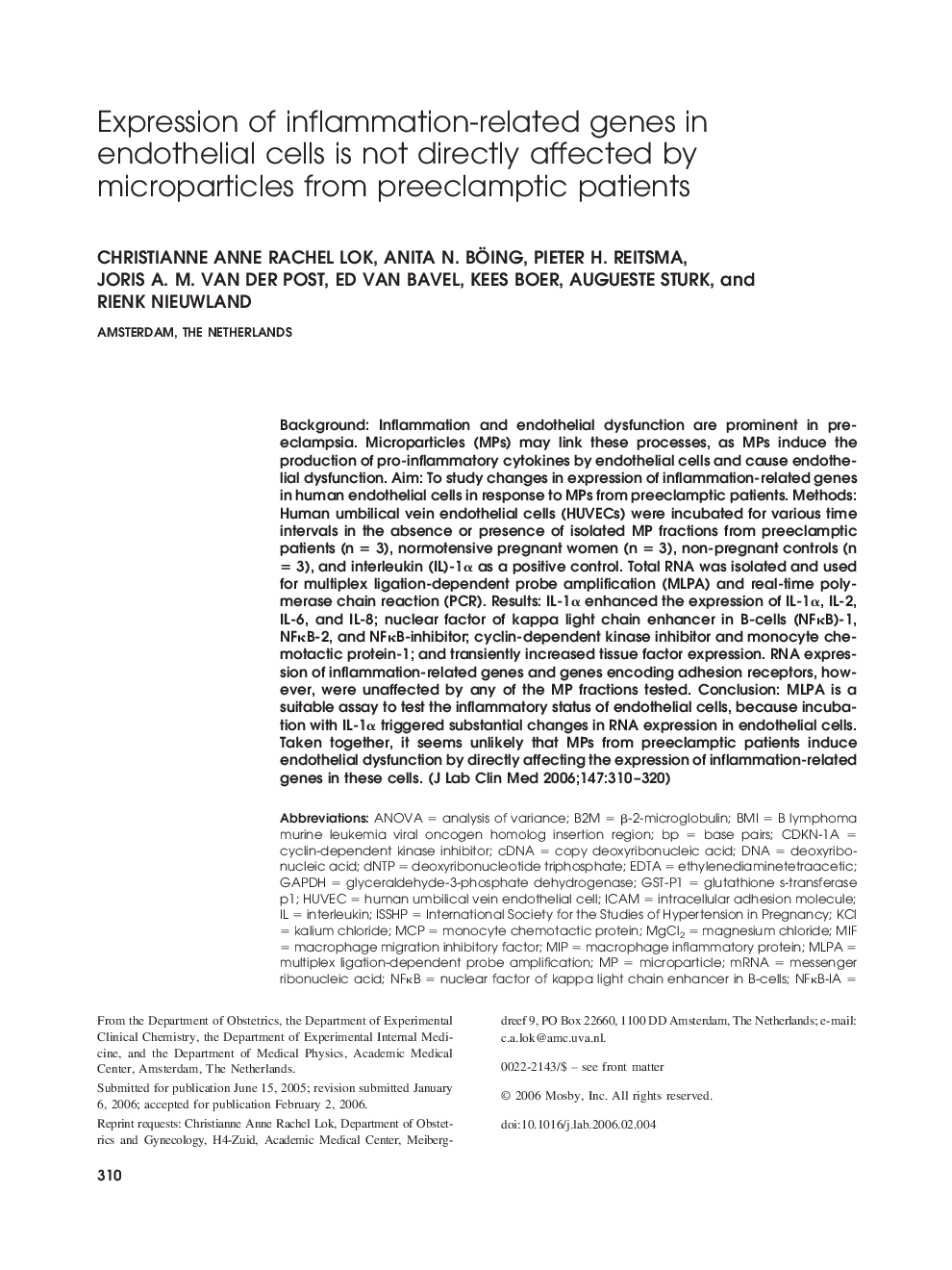| Article ID | Journal | Published Year | Pages | File Type |
|---|---|---|---|---|
| 3481967 | Journal of Laboratory and Clinical Medicine | 2006 | 11 Pages |
Background: Inflammation and endothelial dysfunction are prominent in preeclampsia. Microparticles (MPs) may link these processes, as MPs induce the production of pro-inflammatory cytokines by endothelial cells and cause endothelial dysfunction. Aim: To study changes in expression of inflammation-related genes in human endothelial cells in response to MPs from preeclamptic patients. Methods: Human umbilical vein endothelial cells (HUVECs) were incubated for various time intervals in the absence or presence of isolated MP fractions from preeclamptic patients (n = 3), normotensive pregnant women (n = 3), non-pregnant controls (n = 3), and interleukin (IL)-1α as a positive control. Total RNA was isolated and used for multiplex ligation-dependent probe amplification (MLPA) and real-time polymerase chain reaction (PCR). Results: IL-1α enhanced the expression of IL-1α, IL-2, IL-6, and IL-8; nuclear factor of kappa light chain enhancer in B-cells (NFκB)-1, NFκB-2, and NFκB-inhibitor; cyclin-dependent kinase inhibitor and monocyte chemotactic protein-1; and transiently increased tissue factor expression. RNA expression of inflammation-related genes and genes encoding adhesion receptors, however, were unaffected by any of the MP fractions tested. Conclusion: MLPA is a suitable assay to test the inflammatory status of endothelial cells, because incubation with IL-1α triggered substantial changes in RNA expression in endothelial cells. Taken together, it seems unlikely that MPs from preeclamptic patients induce endothelial dysfunction by directly affecting the expression of inflammation-related genes in these cells.
